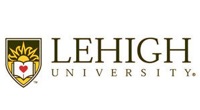Below is a summary of the abstract you submitted. Presenting author(s) is shown in bold.
If any changes need to be made, you can modify the abstract or change the authors.
You can also download a .docx version of this abstract.
If there are any problems, please email Dan at dar78@pitt.edu and he'll take care of them!
This abstract was last modified on March 15, 2023 at 1:55 p.m..

The Cluster N Mycobacteriophage Butters was the focus of the first two years of the SEA-GENES Research Project course at Lehigh University (2020-2021). Butters gp61 is a protein of unknown function that was initially characterized in the course as one that is cytotoxic when overexpressed in the host Mycobacterium smegmatis. More careful analysis subsequently showed that overexpression of Butters gp61 is bacteriostatic, not bacteriocidal. M. smegmatis cells overexpressing Butters gp61 are transiently arrested for growth but can recover and grow normally when expression is turned off. Butters gene 61 was then subjected to a bacterial two-hybrid analysis to identify host proteins that interact with its product. This analysis revealed that Butters gp61 reproducibly interacts with host proteins involved in DNA replication and repair. This led us to hypothesize that Butters gp61’s bacteriostatic impact is the consequence of its interference with host cell DNA replication. Intriguingly, HHPred analysis reveals a domain within Butters gp61 that is found in a replisome organizer of the B. subtilis phage SPP1. We cloned Butters gene 61 into the plasmid pDMH90 to generate a translational fusion with mCherry. The Butters gp61-mCherry fusion protein is also bacteriostatic when overexpressed in M. smegmatis. Using mCherry-specific polyclonal antisera, we performed co-immunoprecipitation (co-IP) experiments with extracts of M. smegmatis cells that overexpress the Butters gp61-mCherry fusion protein. Co-IP samples are being subjected to mass spectrometry analysis to identify host proteins that interact with Butters gp61. To determine if Butters gene 61 is essential for Butters infection we deleted an internal region of the gene by BRED (Bacteriophage Recombineering of Electroporated DNA). Primary plaques were recovered that have both the wild type and mutant forms of the gene. However, no plaques resulting from a secondary infection carried the deleted version of Butters gene 61, suggesting that this gene is essential for a productive Butters infection. We are currently attempting to recover Butters gene 61 mutant phage by complementing the mutation in trans using M. smegmatis cells that express wild type Butters gp61 from a plasmid with an inducible promoter.

